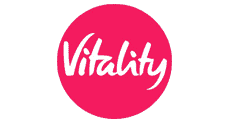Self-Insurance vs Health Insurance
Written By: Stuart Hendy
Self-Insurance vs Health Insurance
Self-insurance is an option to traditional health insurance where you take on the financial risk for your healthcare. It offers flexibility and cost control, letting you customise cover. Pros include potential savings, but cons involve higher financial risk. Let’s explore whether it’s worth considering.
Get Tailored Health Insurance Quotes from Top UK Insurers
Self-insurance: What Is It?
Self-insurance involves setting aside funds to cover possible medical emergencies, essentially making you your own insurer. Instead of making monthly premium payments, you decide the amount to save each month. This approach gives you the freedom to choose hospitals and consultants based on your budget, removing the uncertainty of claim approval. Self-insurance guarantees coverage for pre-existing conditions without facing rejection. Combined with basic health insurance, it offers flexibility in handling medical emergencies. However, it’s essential to note that certain insurances, such as car insurance, are mandatory and cannot be self-insured.
How Self-Insurance Works?
In exchange for paying your insurance premiums, an insurance company will cover your treatment up to a predetermined number of sessions or predetermined financial limits when you take out a health insurance policy.
- Funding: Establish your self-insurance account and diligently contribute funds. Consider factors like expected healthcare costs, family health history, and age.
- Paying: When healthcare needs arise, use your self-insurance funds to cover expenses like doctor visits, prescriptions, and even surgeries.
Self-Insurance vs. Traditional Health Insurance
Here’s a quick comparison:
| Feature | Self-Insurance | Private Medical Insurance |
|---|---|---|
| Funding | Personal funds set aside. | Premiums paid to an insurer |
| Financial Control | Direct control over savings and spending. | Limited control, fixed premiums. |
| Provider Choice | Freedom to choose hospitals and consultants based on budget. | Network limitations and insurer-approved providers. |
| Claim Process | No claims process, immediate access to funds. | Claims process, authorisation uncertainties. |
| Pre-Existing Conditions | Coverage guaranteed without rejection | Exclusions or waiting periods for pre-existing conditions. |
| Flexibility | Flexible approach to managing medical emergencies. | Standardised coverage with limited flexibility. |
| Combination Possibility | Can be combined with basic health insurance for added flexibility. | Operates independently, with limited combination options. |
What Are The Benefits Of Self-Insurance?
Freedom over your savings
Choosing self-insurance means you can skip those high monthly fees and decide how much money to save, which is great given the rising cost of living. It provides the freedom to cover smaller expenses like sports injuries, therapies, or consultations with your own funds. However, there’s a downside. Extended and expensive treatments, like those for conditions such as cancer, can create significant financial challenges if you rely solely on self-insurance.
Sometimes it’s cheaper
If you want to keep private medical coverage, you have to keep paying the premiums. Some people end up paying for years without using the service. For a 35-year-old, the average cost of health insurance premiums is £42.19, and this can add up over time, especially as you get older and premiums increase.
Now, let’s talk about therapy costs. In 2025, a single therapy session in London costs around £80- £120. If you’re paying a £45 monthly premium but only using it for therapy, it might be cheaper to pay for therapy yourself. When you make a claim on your insurance, your renewal premiums could go up. But if you fund therapies on your own, you don’t have to worry about that. So, paying for therapies out of your pocket might be a better option for you.
Avoiding long waiting times
With long NHS wait times, self-funding is a practical choice, particularly if you’re concerned about waiting up to 50 weeks for consultations and treatment. Even with health insurance, delays for referral letters, GP confirmations on pre-existing conditions, and claim authorisations from the insurance provider are inevitable.
You have control over your pre-existing and chronic conditions
Chronic conditions like asthma and high blood pressure issues need long-term care. Insurance companies usually don’t cover these existing conditions to reduce risk. Your insurance provider may exclude conditions you had in the past five years for the next two years.
Self-insurance works differently. You can get treatment from your doctor or an NHS consultant until you need surgery. With self-insurance, you can use your funds for private procedures.
You can choose where you want to get treatment
When you self-insure, you can choose where you want to get treated. Unlike NHS or regular medical insurance that limits your choices, self-insurance lets you decide on consultants, clinics, and hospitals. You might use the NHS for diagnosis and pay for treatments at a top London hospital or do it the other way around—pay for quick diagnosis and then get NHS treatment. It’s all about having the freedom to choose what works best for you.
Benefits for SME Health Plans
Self-insurance primarily aims to cut down on claims and premium costs, benefiting businesses by boosting operating profits. By taking on the role of an insurer, the company handles risk and underwriting profits, avoiding expenses like policy administration overheads. Additionally, self-insurance plans sidestep residual market loadings and premium taxes, often resulting in lower overall costs compared to standard insurance rates.
Cons of Self-Insurance?
Before deciding on self-insurance, understanding potential drawbacks is crucial. Here are some key downsides to consider when opting for self-insurance.
Some treatments can be expensive
Facing long and costly cancer treatments, which might reach millions, is tough. Health insurance becomes important, giving you access to treatments the NHS doesn’t provide. Unlike self-insurance, it opens up more treatment options, covering advanced medical help. This is especially good for you, helping to ease the money stress from serious illnesses.
Unpredicted expenses
Putting money aside for your treatments is smart, but unexpected things can happen. You might use the money for something else, or the treatment costs could be more than what you saved. Be ready for surprises that might affect your money plans.
You have to pay for everything
The challenging aspect of self-funding is that you’re responsible for covering all expenses. For instance, initial consultations can range from £180-£250, tests and diagnostics may run into thousands, and treatments can cost even more. Post-treatment, you’ll incur additional expenses for aftercare like therapies and follow-up appointments, significantly adding to your costs. In contrast, private medical insurance can help save on these expenses.
Can I combine Self Insurance with Health Insurance?
Combining health insurance with self-insurance is a smart move to share the costs. You can opt for a basic health insurance plan that covers major illnesses while self-funding smaller treatments like therapies, tests, and diagnostics. This way, you avoid significant debts and long waits on NHS lists.
The health insurance takes care of the big expenses, while your self-insurance handles the smaller, regular costs. It provides a balanced approach, ensuring you have comprehensive coverage for serious illnesses and the flexibility to manage day-to-day medical needs without financial strain or extended waiting times.
Is self-paying expensive?
Self-paying for serious treatments, such as heart surgery in the UK, can be expensive, reaching up to £20,000. On the other hand, private colonoscopy costs may be more affordable, averaging around £2200 based on January 2025 prices. Similarly, surgeries like cataract procedures could amount to approximately £2500. The expenses vary significantly depending on the type of treatment, highlighting the potential financial challenges you may face when opting for self-payment in the healthcare sector.
How can I get ready for self-insurance?
To get ready to cover your own expenses without insurance, first, make a special account and regularly put money into it. You can open a new savings account or use one you already have that gives you good benefits.
Next, talk to a money expert for advice. They’ll help you figure out how much money you need to save and understand how comfortable you are with taking risks.
Remember these three things to avoid getting confused:
- A special account is a separate account just for saving money or one that gives you extra benefits.
- Money advice- Get help from a money expert to understand how much money you need to save and how comfortable you are with risks.
- Start small- Begin by saving for smaller healthcare costs. As you feel more sure, you can put more money into your special account.
Conclusion
Self-insurance isn’t a one-size-fits-all solution. Carefully consider your health needs, financial situation, and risk tolerance before leaping. If you want to know more about self-insurance, get associated with PremierPMI.
We believe in conducting regular research to help you keep up-to-date about various types of insurance and help you in making an informed decision. PremierPMI has been helping individuals and families navigate the complex world of health insurance for over 40 years. Our experienced advisors have a deep understanding of the products and services offered by all the major providers, and we are committed to finding the best plan for your needs and budget.

Stuart Hendy, Senior PMI Advisor &Editor
Stuart Hendy is a highly experienced health insurance broker with extensive knowledge of private medical insurance and private treatment. His expertise is frequently sought by industry professionals and his insights have been featured in leading financial publications. Stuart is committed to providing his clients with the best possible healthcare solutions and empowering them to make informed decisions.
FAQ
How it works
Step 1. Answer a few simple questions
Step 2. Get tailored quote
Step 3. Get covered and start saving
Why Choose Us
We offer completely free and no obligation advice on Private Health Insurance. Our experienced advisors will take the stress away from you and do all the hard work in finding you the best Provider by comparing quotes with the top leading providers in the market. We have worked directly with AXA, Aviva, Bupa and Vitality for over 40 years, we have been tailor-making the best policies for our customers.
Health Insurance People
Get expert advice from our dedicated health insurance advisors for free
24/7 Customer Care
You can contact us anytime and one of our health insurance consultants will always be available to you.
Claims Support
We will be there for you throughout the claims process to ensure that it is easy and stress-free.













